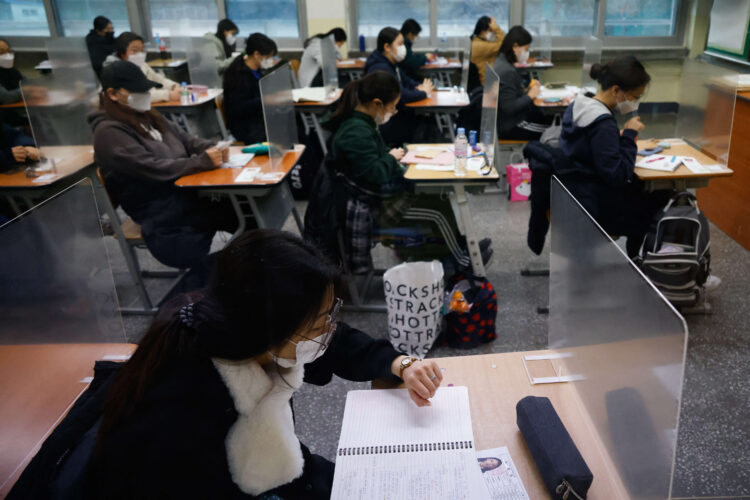By Gavin Mackintosh-
Twice as many sixth formers will rightly miss out on the grades they expected in this year’s A level results, after it was revealed than exams marks will return to pre-pandemic levels.
The aftermath of the pandemic continues to cast its shadow on the education sector, as this year’s A-level results reveals a dramatic shift in grading compared to last year.
The decision to clamp down on grade inflation, which surged due to teacher-assessed grades replacing traditional exams during the Covid crisis, has left a significant number of students facing the prospect of not attaining the high A-level grades they anticipated.
While the aim to maintain academic standards is commendable, the implications of this stricter marking approach are generating debates about fairness, equality, and the long-term impact on students’ futures.
The government’s resolve to revert A-level results to 2019 levels is to restore credibility in the grading system.
Universities have seen more students than usual drop out in the past two years due to the laxity in marking arising from teacher assessed grades.
Some teachers have also been found to have deliberately cheated in favour of particular GCSE students, inflating their grades and sending them to the next level ill equipped, only for their grades to be further inflated for their A levels, much to their peril. This has made many students enter university prematurely.
In one case a modern language teacher from Kenton school admitted helping pupils cheat, after he was caught
A few experts in the education sector question the rapidity of this shift, particularly for students who experienced the turbulence of the pandemic. This is because the cohort of young learners that took their GCSE exams this year, missed vital GCSE exams required to contribute to their academic development.
Preparation for such exams are often considered essential groundwork for higher-stakes A-levels. Additionally, Covid-related disruptions severely impacted their learning routines.
However, some academics believe that if the system of teacher assessment were professional and fair reflection of the ability of pupils at the time, they have had enough time to meet A level standards. Compromising standards distorts the true quality of both students and the system.
Positive Aspects of Stricter Marking
Advocates of stricter marking emphasize the importance of maintaining the integrity of academic standards. The significant grade inflation witnessed in recent years can undermine the credibility of qualifications and raise concerns about whether students are adequately prepared for university-level work.
By curbing grade inflation, the system can encourage a more accurate representation of students’ abilities, promoting fair competition in university admissions.
Furthermore, a stricter marking approach could motivate students to strive for excellence in their studies. The possibility of achieving top grades through genuine effort and academic prowess rather than benefiting from a lenient grading system would ensure that higher education institutions receive students who are truly prepared for the challenges of university education.
Negative Implications for Disadvantaged Students
While striving to maintain academic standards is essential, critics argue that the rush to curb grade inflation might disproportionately affect students who have been disproportionately affected by the pandemic.
These students faced unprecedented disruptions, including school closures, remote learning challenges, and a lack of access to resources. The absence of GCSE exams might have deprived them of valuable exam experience, leaving them at a disadvantage when it comes to high-stakes A-levels.
Stricter marking can perpetuate educational inequalities. Students from more privileged backgrounds, who might have had better access to resources and learning support during the pandemic, could have an unfair advantage under this approach. The result is a potential barrier for students who deserve a fair chance to succeed, regardless of their socio-economic background.
Against this view is the idea that it is up to students to work as hard as necessary, and fill in the gaps caused by the pandemic through perseverance and consultation, and possibly parental support.
Image: Ed Jones/AFP




